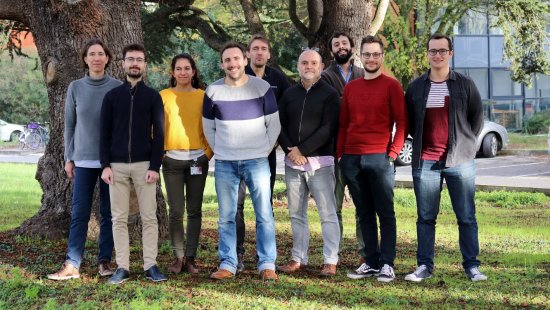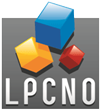PRESENTATION OF THE NANOTECH GROUP
The Nanotech team from the LPCNO develops innovative techniques of directed assembly of colloidal nanoparticles synthesized by soft chemistry on rigid/flexible surfaces or to form self-supported membranes. The final objective of such developments is the realization of nano-devices exploiting the original properties of those nano-objects.
For the past few years, the team has been working towards this goal by developing two main applications:
(i) very sensitive resistive sensors based on conductive nanoparticles: strain gauges, humidity and temperature sensors. The high impedance of these sensors coupled with the miniaturized size make them particularly adapted for creating networks of communicating wireless sensors. This work, protected with patents, gives rise to strong collaborations with industrial partners, partners like the start ups Nanolike, and Nanomade Concept who work on the development of flexible touchscreen surfaces.
(ii) smart secured nanomarkers based on photoluminescent or biocompatible nanoparticles. Owing to the double functionality of authentication/traceability and thanks to the numerous degrees of security that could be integrated, these patented markers offer innovative alternative solutions to fight counterfeiting in various domains (official documents, luxury products, armament…).
In parallel, the team leads up-front works in two domains:
– the plasmo-electronic field, studying the coupling between plasmonic phenomena and electronic transport in assemblies of metallic nanoparticles surrounded by organic ligands. In collaboration with the NeO team from CEMES, work is under progress to understand the interaction between surface plasmon resonance, the electrical conductance, and the associated mechanisms. It should lead to applications in hyperthermia
– the microfluidic field, to study in-situ the mechanisms of the directed assembly of nanoparticles on surfaces and to bring new hybrid/oriented assembly methods with different kinds of nanoparticles.

